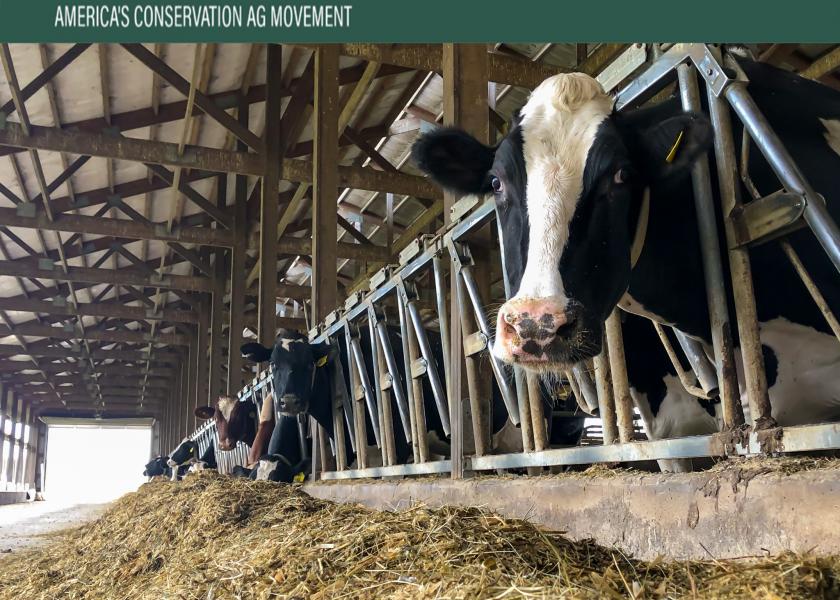Could Precision Feeding Boost Efficiency and Reduce Methane Emissions?

Building trust in food begins with empowering farmers through one of the largest and most diverse conservation- and sustainability-focused public-private partnerships in our nation’s history: America’s Conservation Ag Movement. To find the latest news and resources related to the Movement, visit AgWeb.com/ACAM.
Efficiency is a key part to profitability. Whether it be looking for ways to reduce labor or streamlining tasks to save time, dairy farmers are always on the hunt for new ways to become more efficient.
But what about dairy cattle? Can they become more efficient? New research shows they can.
A recent study conducted by French scientists (Fisher, Edouard and Faverdin), showed that restricting inefficient animals from overconsuming feed could be a viable method to improve milk energy efficiency. The objective of the study was to apply a precision feeding strategy to cows who were less efficient than the 10% most efficient cows and see if this restriction method would improve their feed efficiency.
In the study, 68 lactating Holstein cows were monitored for 92 days, with 30 of those animals being placed on a precision feeding diet. Individual dry matter intake, body weight, milk production, milk composition and body condition score were recorded, as well as methane emissions.
According to the scientists, this feed restriction strategy indubitably narrowed the differences between cows for feed and milk energy efficiencies. Furthermore, methane emissions decreased significantly more for the least efficient cows with a decrease of 49.2 g/d compared to a reduction of 26.8 g/d for the most efficient cows.
“Precision feed restriction reduced daily methane emissions more for the least efficient cows than for the most efficient cows, primarily because the least efficient cows were more feed restricted than the most efficient cows,” researchers say. “Reduction in methane emissions and improvement of efficiency without impairing cows performance suggest that part of feed inefficiency may come from overconsumption of feed, which leads to lower mean retention time of feed in the rumen and therefore to lower digestibility.”
To read the full research study, click here.







